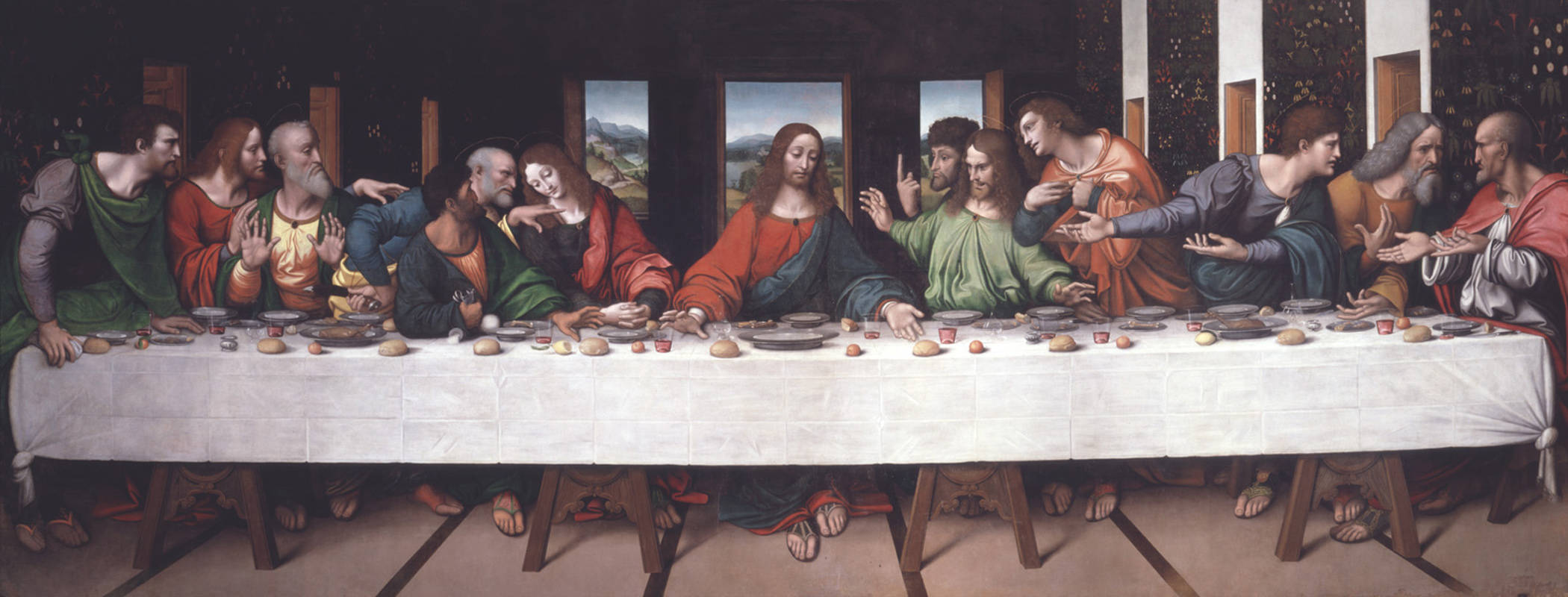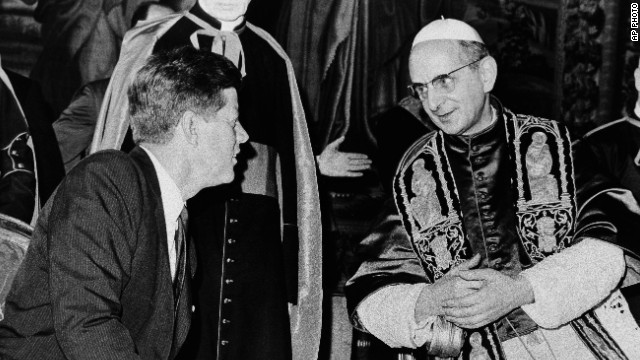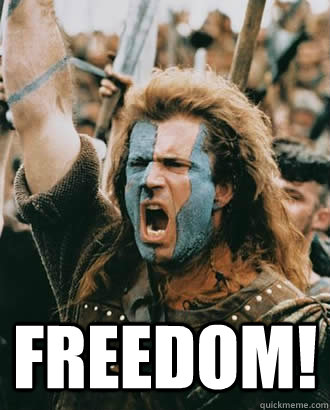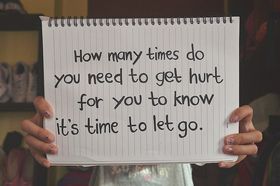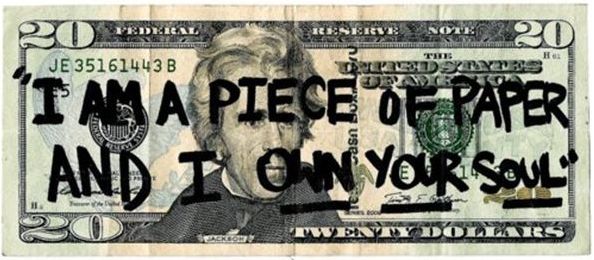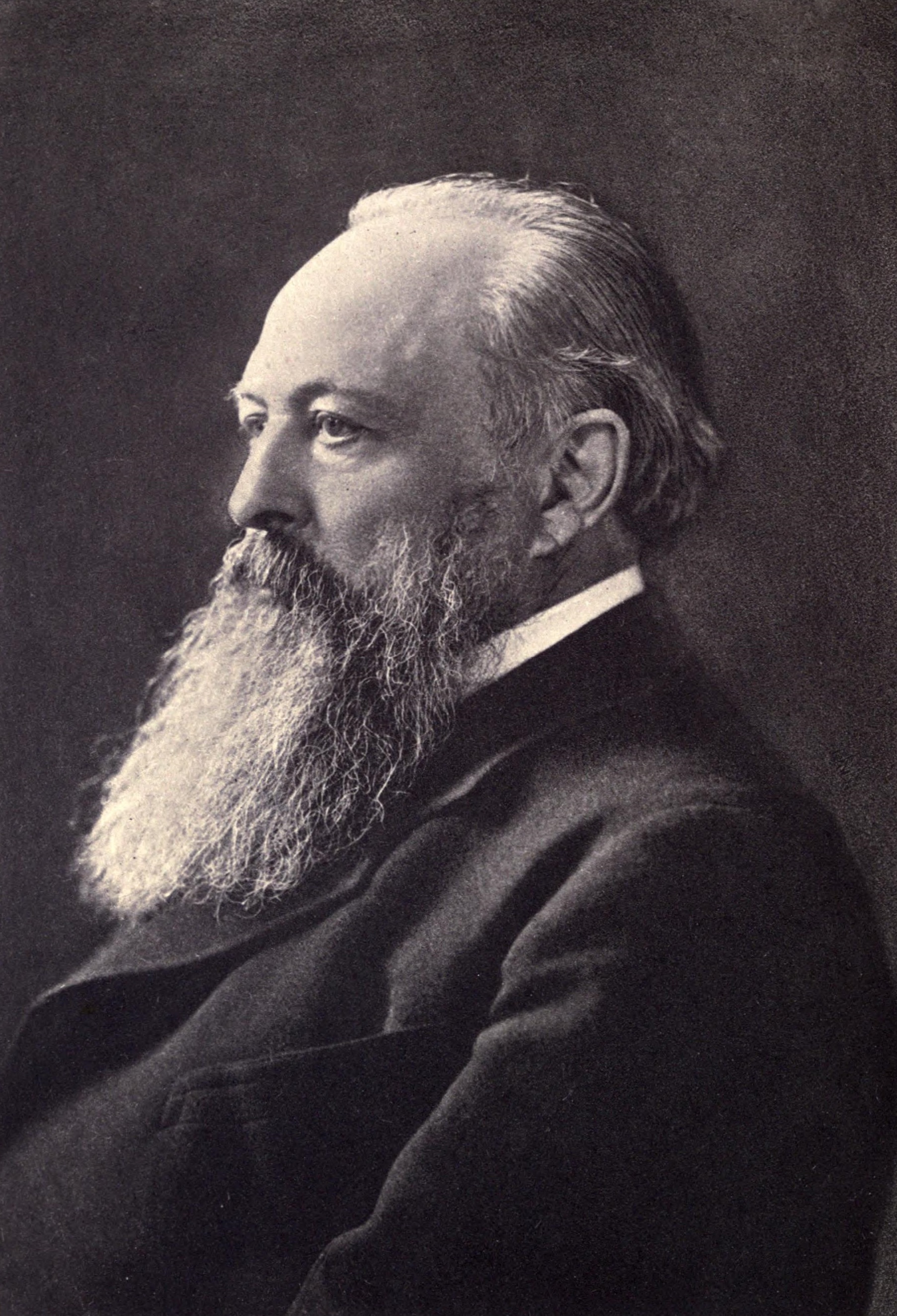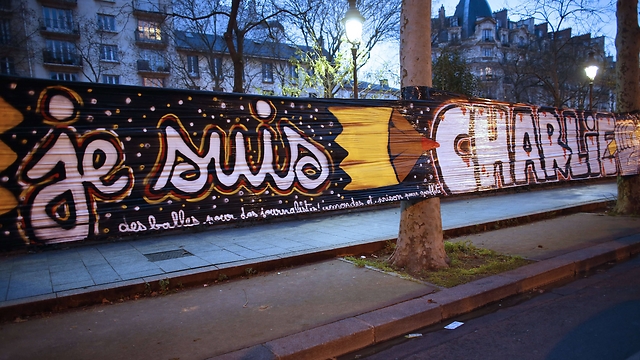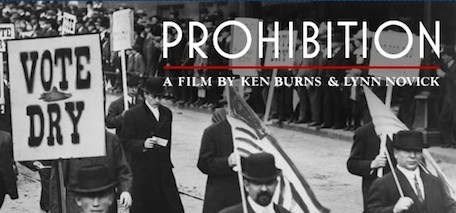Why are so many American Catholics… not... well, Catholic?*
Why do many Catholics in the United States live together before marriage, practice contraception, divorce, as well as support the legality of same-sex marriage when church dogmas decry these practices as mortal sins? How can so many US Catholics dismiss confession and the real presence in the Eucharist? How can they believe that the Catholic Church has the authority of God to pass down the teachings of Christ and His Apostles but then turn around reject these same teachings in their everyday life?
The most popular explanation from the leadership is that Catholics have not been properly catechized. The solution, they claim, is better communication of Church teachings.
Yet, I don't see that as a full explanation. The vast majority of Catholics know what the church teaches. They simply disagree. This is not a matter of ignorance, but of ignoring. Part of the ignoring is coming from the hierarchy itself.
When the bishops realize they've lost, they give up. And that is a huge problem with American bishops. They have given up trying to teach the faith because they don't think they can fight the culture. Why teach something is wrong, when everyone does it and will continue to do it?
Capitalism and Usury
Take as an example the issue of Christians charging interest on a loan. It used to be called usury. Catholicism, until recently, considered usury a sin. The term "usury" has been dropped from the church's language and has been recast (and redefined) in light of the overwhelming force of capitalism.
Imagine attempting to live in a capitalistic culture without either charging interest on a loan or taking a loan in which someone is charging interest. Catholics could not take out a mortgage on a house or a car loan. They could not own a credit card, which means they couldn't purchase anything online or reserve a hotel room. Imagine a priest today giving a homily teaching that Catholics cannot have anything to do with usury. That would be asking almost the impossible. The Vatican herself now has a bank that charges interest.
In this, Catholicism has caved to the capitalistic culture of western civilization. The banks won the hearts and minds of the people. Now almost no Christian, Catholic or Protestant, has even heard of the term usury.
In the United States of America we find this same type of example repeated over and over. Catholicism becomes part of the great melting pot, and we are assimilated.
Serving Two Masters
The dilemma Catholic Americans have is that some of the United States values are diametrically opposed to some of their values. If you read about the religious intolerance towards the 19th-century Catholic immigrants, you get an better
understanding of this issue. Americans could not see how Catholics could be good US citizens with their worldview of authority. Where would their heartfelt fidelity lie? The authority of the pope and their religion or individual rights and democracy? The early Catholics assured the Protestants that they could be both patriotic and Catholic. That the two world views could peacefully co-exist—a true separation of church and state within their personal lives.
Even into the present time, there has been much skepticism of Catholics. In order to allay fears, President John Kennedy declared he would not allow his personal loyalty for Catholicism to influence his political loyalty to America. Thus the most famous Catholic at the time continued to pave the psychological split for modern Catholics. Now even bishops approve of the compartmentalizing of the believers values into spiritual and political; thus rendering "unto Caesar that which is Caesar's and to God that which is God's."
Jesus' message, however, was about taxes not values nor a biblical perspective. Christ was clear when it came to world views and loyalties. Believers are not to love the world. His followers cannot serve two masters, for they will learn to love one and hate the other. So rather than successfully separating the two world views (which has turned out to be impossible), Catholic-Americans have chosen to love one master above the other.
Look at the Catholic divorce rate. It is very similar to the general public's. Have they followed their faith which states that no man can render what God hath joined together, or have they caved to America's divorce laws because it is their legal right?
The following are a listing of some American fundamental values that are in direct conflict with Catholic fundamental values. Ask yourself, when you compare these, which worldview has won the hearts of Catholics? The American or the Catholic?
Dividing God From the Government
American values: Government and the church should have a high wall of separation between them. The government must be free from religious interference and religion free from governmental interference.
Catholic values: Civil authority is given by God as His arm of justice and protection. Government and religious organizations complement and balance out each others' power. A dividing wall between the two historically results in the government becoming God for its citizens. (Rom. 13:1-3; I Tim. 2:2; Heb. 13:17; I Peter 2:13)
Example: Patriotic Catholics find themselves in a dilemma with same-sex marriage. Can Catholics truly believe that God declares same-sex marriage a mortal sin which breaks down the foundation of civilization; yet vote for same-sex marriage as a civil rights issue because of the separation of church and state?
Serving Two Masters: When we look at the Catholic vote, which worldview has won the hearts of Catholics?
No Gods, No Masters
American values: When Lord Action wrote, "Power corrupts and absolute power corrupts absolutely," Americans engrave that bit of wisdom into their spirits as if it were the Word of God. When citizens place their hands upon their hearts and pledge allegiance to the flag or stand in honor of the national anthem, they are essentially vowing to the American gospel of individualism, capitalism and democracy. This gospel of distrust of authority is taken unto the whole world with evangelistic and military zeal.
Catholic values: Scripture records that God sets up and takes down kings. He sets up authorities and believers are to submit to them—whether it be civic authority, father and mother or bishop. Christians do not have the right in the economy of the Kingdom to exercise their freedom to disobey God-given authorities. (Rom. 13:1-3; I Tim. 2:2; Heb. 13:17; I Peter 2:13)
Example: When Catholic children are raised in a culture where authority distinctions are downplayed or even scoffed at, where equality of treatment is considered a right, how does the church teach honor towards leaders? When there is a cataclysmic failure of our culture to teach respect, how do Catholics teach respect for the priest, the Eucharist, the mass or Mary and the saints or even life itself?
Serving Two Masters: When we go to mass, which worldview has won the hearts of Catholics when it comes to showing reverence to God and to authorities?
Rugged Individualism
American values: Americans heroize the man who became successful by picking himself up with his own bootstraps. America is all about the individual. Personal rights supersede community rights. American Protestant theology teaches an individualized saving faith. And that a believer has a God-given right to interpret scriptures which overrules the historical interpretation. Unity of Christians into any organized religion is held in suspicion.
Catholic values: Christ wants unity. He said that it is not good for man to be alone and a house divided will fall. Catholics have an emphasis on the treasury of merits and sharing in one another's faith. (John 17:23; Rom. 15:5; Eph. 4:3, 13; Col. 3: 14; I Tim. 2:8)
Example: Though the Church officially teaches using birth control is a mortal sin, often at confession those using contraception are told, "your spouse and you need to follow your consciences on this subject." 82% of adult Catholic polled do not consider using contraception a sin.
Serving Two Masters: When our culture is warning of a population crisis and having children is irresponsible, which worldview has won the hearts of Catholics?
[Side note on unity:]
Americans hail Luther and Calvin as the great heroes in the struggle against the totalitarian and monstrous Catholic Church for persecuting heretics in order to maintain an unified Body of Christ. And yet those same people will erect a "temple" in DC housing a monumental statue of President Lincoln hailing him a great hero for keeping the Union together at the cost of 650,000 American young mens' lives. For Americans sacrificing lives for unity is good in politics, just not in Christianity.
Freedom of Speech/Expression
American values: God gives each human the right to freedom of speech and self expression no matter who it offends nor how intrinsically it is offensive. Therefore it is a noble, in fact, a great martyrdom to give one's life for the God-given right of some artist to display a crucifix in a jar of urine or a painting of the Madonna with dung flung upon her face.
Catholic values: God hates evil and the ugly that stems from evil. There is an intrinsic value to truth, beauty and goodness: these must be protected. The false, debased and wicked must be spoken against. (Phil. 4:8; Gal. 5: 22; Eph. 5:9; Rom. 1:18-31)
Example: Can a faithful Catholic defend the pornographer's right to self-expression? Should a Catholic soldier die to protect the right of another American to put on a play portraying Christ as a homosexual?
Serving Two Masters: When we look around at what is considered free speech and art, is the Christian's voice being heard in protest against this? What value has won the Catholic heart?
Freedom of Conscience:
American Protestant values: Conscience is the highest spiritual court in the universe. Each person can trust their hearts and personal faith to know what truth is.
Catholic values: God leads the Body of Christ as a group into all truth. Individuals should not insist on private interpretation of scripture where it disagrees with what Christianity has always taught. (2 Peter 1: 20; Matt. 18:17-20; Gen. 2:18)
Example: Do Christians stand against the murder of the unborn? Or do they believe each person had a right to decide based on their personal conscience? What about euthanasia?
Serving Two Masters: Which of these attitudes has won out in America?
The Pursuit of Happiness
American values: Humans have the God-given right to pursue happiness.
Catholic values: Humans have the God-given responsibility to pursue holiness. (2 Cor. 1: 12, 7:1; Eph. 4: 24; I Thess.. 3:13; I Peter 1:15-16, 2:9; II Peter 3:11)
Example: In a culture that says dump relationships that are toxic and hard; do what makes the person happy, how difficult is it for Catholics to teach their children to stick with relationships even
when they are tough. Catholics believe the goal is to pursue the sacrifice of sainthood which cries out to God, "not my will, but thine."
Serving Two Masters: Do Catholics in America seem to follow the worldview of sacrifice or the pursuit of happiness? Which value has won their hearts?
Money = American Success
American values: America is the New Jerusalem of economic opportunity. The American Dream is financial success through capitalistic investments.
Catholic values: You cannot serve both God and money. In the words of Catholic historian, Lord Action,"There is not a more perilous or immoral habit of mind than the sanctifying of success." (Matt. 10:9, 19:23-24; Luke 1: 15, 12:33; I Tim. 3: 3, 6:10; II Tim. 3:2. 6:9, Jam. 1:11, 5:1; Rev. 3:17)
Example: Often American prayers are pleading for more financial resources to solve a problem they or someone they love is having. While believers look to God for eternal salvation, many look to money for help right now. It is difficult if not impossible to live in a capitalist system where one gives one's entire life towards accumulating money and at the same time live with a spiritual truth that money is the root of all evil.
Serving Two Masters: Do Catholics measure success by how much money they have? Which value has won out?
American Values 101: Patriotism = Godliness
Our national story has been retold countless times to our children. For centuries, godly pilgrims fled to the hallowed shores of the new world to establish a nation unlike all nations before it. This would be a Promised Land for all seeking to shed the shackles of tyranny. Here, brave men and women have boldly grasped the greatest of all values: liberty. Each soul has the right to follow their individual conscience to pray as they think best, read the Bible and interpret it for themselves, worship and live as they desire.
US citizens continued to be taught that the greatest value worth living for and dying for is freedom. "As He died to make men holy, Let us die to make man free…. Glory, glory Hallelujah."**
But, eventually when Catholics fled Protestant or atheistic nations and came to America in large numbers, they found in the assimilation a deep tension between American liberalism and Catholicism. And generation by generation the indoctrination of freedom from authority has taken its toll.
So I have laid out the problem. But from where does the tension between these two world views stem?
Enlightenment Philosophy
Protestant America is very quick to criticize Catholics on their pagan origins for many of their doctrines and rituals, but there is nothing more pagan the origins of American philosophy.
America's Founding Fathers integrated the most anti-christ, pagan-inspired philosophies known to man into their own versions of Christianity. The foundations of the Constitution ingested the brilliant but atheistic ideals of the German and French philosophers in its desires to make a Christian Utopia, a city on a hill, a bastion of tolerance for all mankind, the American New Jerusalem. The Founding Fathers thought they could make a world better than Catholic Europe had or Anglican England. So they rejected Christian history and started over, doing things their own way—the enlightened way. And it looked as if it would work, for a while.

The Enlightenment-based France gifted to us the ancient Roman goddess of freedom, Libertas, to guide the immigrants to the land of the free, home of the brave. Inspiration from this Statue of Liberty has American's creating idols out of the free-thinkers, the rebels, the activists and at times, even the anarchists. Every form of wickedness and societal destruction is introduced into society under the banner of civil liberties from divorce to euthanasia.
An example of how this tension between the Enlightenment philosophy and Catholicism played out is in the life of Lord Acton.
Lord Action
19th-century Catholic and British historian Lord Action had a fascination with the American government's emphasis on individual liberties. He believed centralized governments by nature always became tyrannical.
Because of his great fear of the corruption of power, Lord Action went to Rome to oppose the idea of papal infallibility at the First Vatican Council in 1870. It was about papal infallibility that he wrote the famous words, "Power tends to corrupt, and absolute power corrupts absolutely. Great men are almost always bad men…" But Lord Action soon came to realize that his liberal values about government could not survive against his faith. It was causing a tearing of his loyalties to his culture and his God. His life ended with a break with liberalism and in loyalty to Catholicism writing that he considered his "communion with Rome as dearer than life."
How many American politicians can we say ended up like Lord Action, choosing Catholic values over American values? The Kennedy's, Rudy Giuliani, Nancy Pelosi, John Kerry, Kathleen Sebelius, John Boehner?
Conclusion:
Catholicism has flourished under the most extreme political climates—from dictatorships to communism. Catholicism has changed the globe because we have been at enmity with evil cultural values—not assimilated into them.
America is a different problem, because it claims its foundations and culture are Christian, called and blessed by God. And indeed the vast majority of her populous claims to be Christian. That is where the great confusion and chaos begins.
When liberty and the pursuit of happiness are enshrined within the spirit of a nation, when it is preached as Providence's raison d'être for creating humans, indeed, when liberty is taught as the very point of the Cross, any group that teaches submission to God's authority will be seen as the enemy of the gospel and the antichrist. The USA has turned what is wrong to what is right and what is right to what is wrong. It's values fight Christians values wearing a Christian mask.
America's god has pitted itself against the Catholic God by ingraining into their citizenry from the moment they are born that patriotism is godliness. Anyone who fights against individualism is fighting against Christ.
So until the Catholic hierarchy understand and clearly differentiates between the Catholic worldview and the American worldview, Catholics will be submerged in a system that will win. And Catholic children will raise their hands to their hearts and pledge alliance to America never understanding they are being ingrained with an enlightenment philosophy that will teach them to hate or at least ignore their faith.
One cannot serve two masters—both God's values and American values. Often Americans assume they are the same values, but they are not as we have shown. The Christian will grow to love one philosophy and grow to hate the other.
________________________________
* This is about United States Catholics, but I am aware that these same arguments could be used for most of western civilization.
**The original words to the last verse of the Battle Hymn of the Republic were later changed by choirs to "let us live to make men free."
